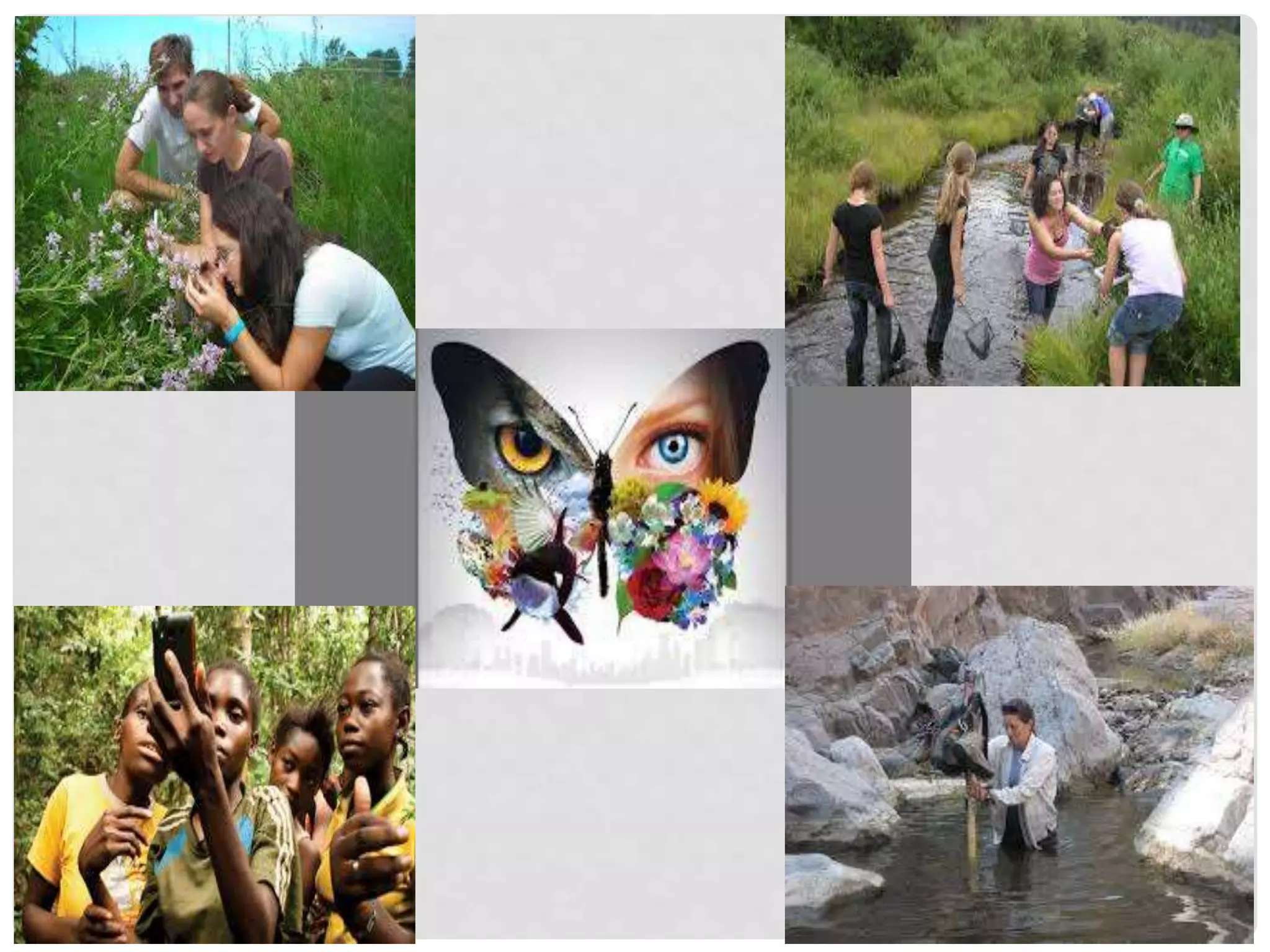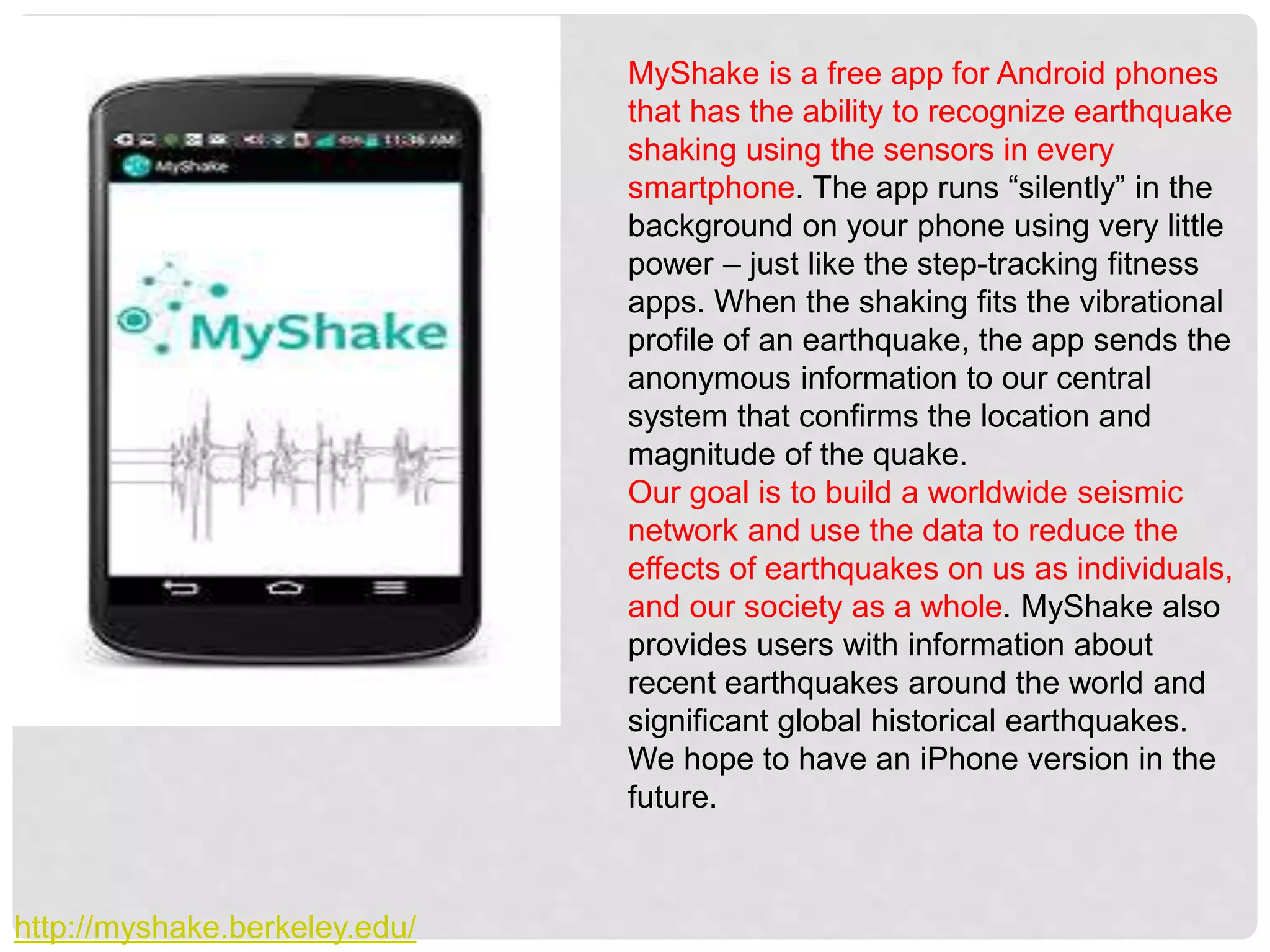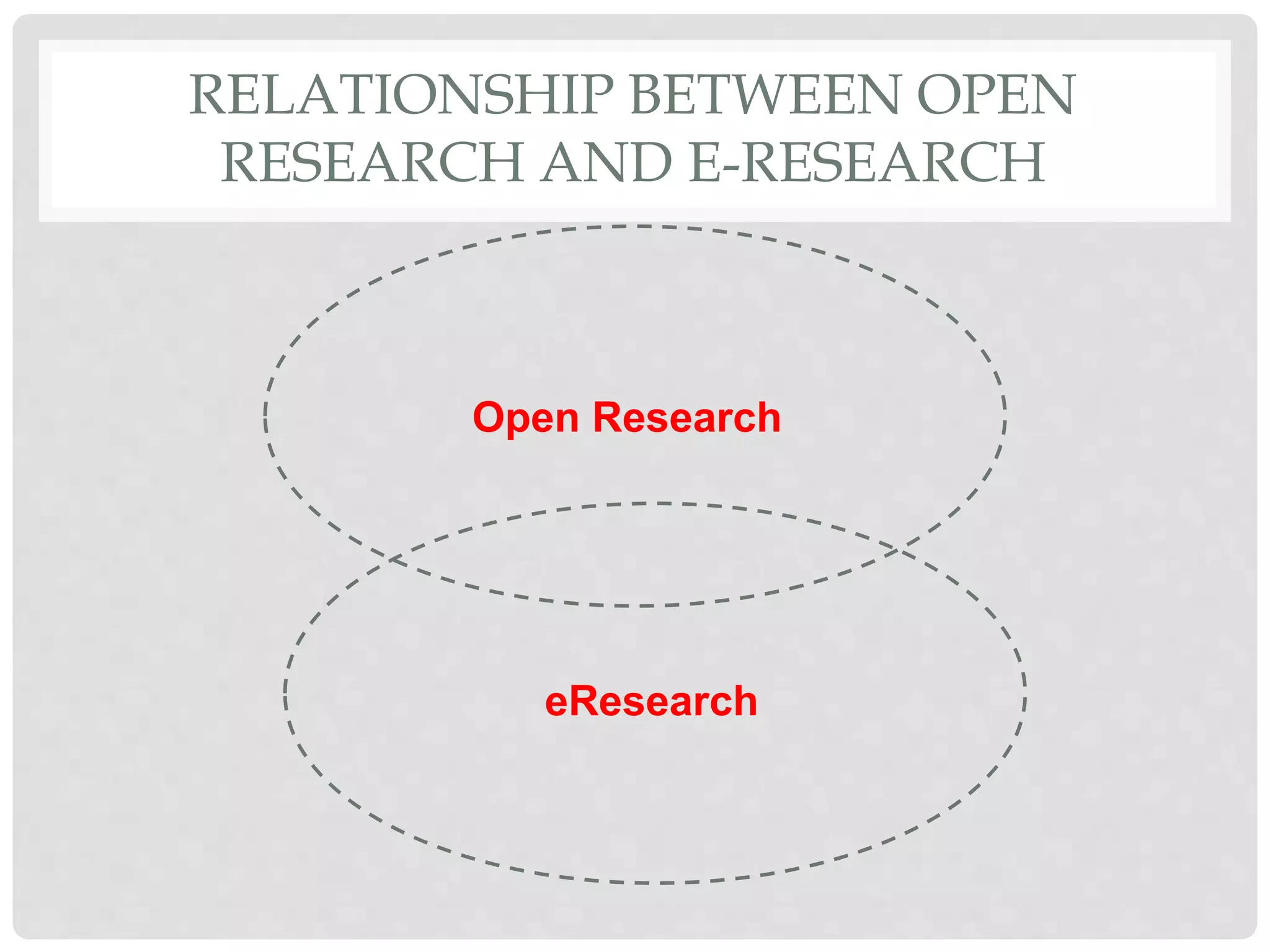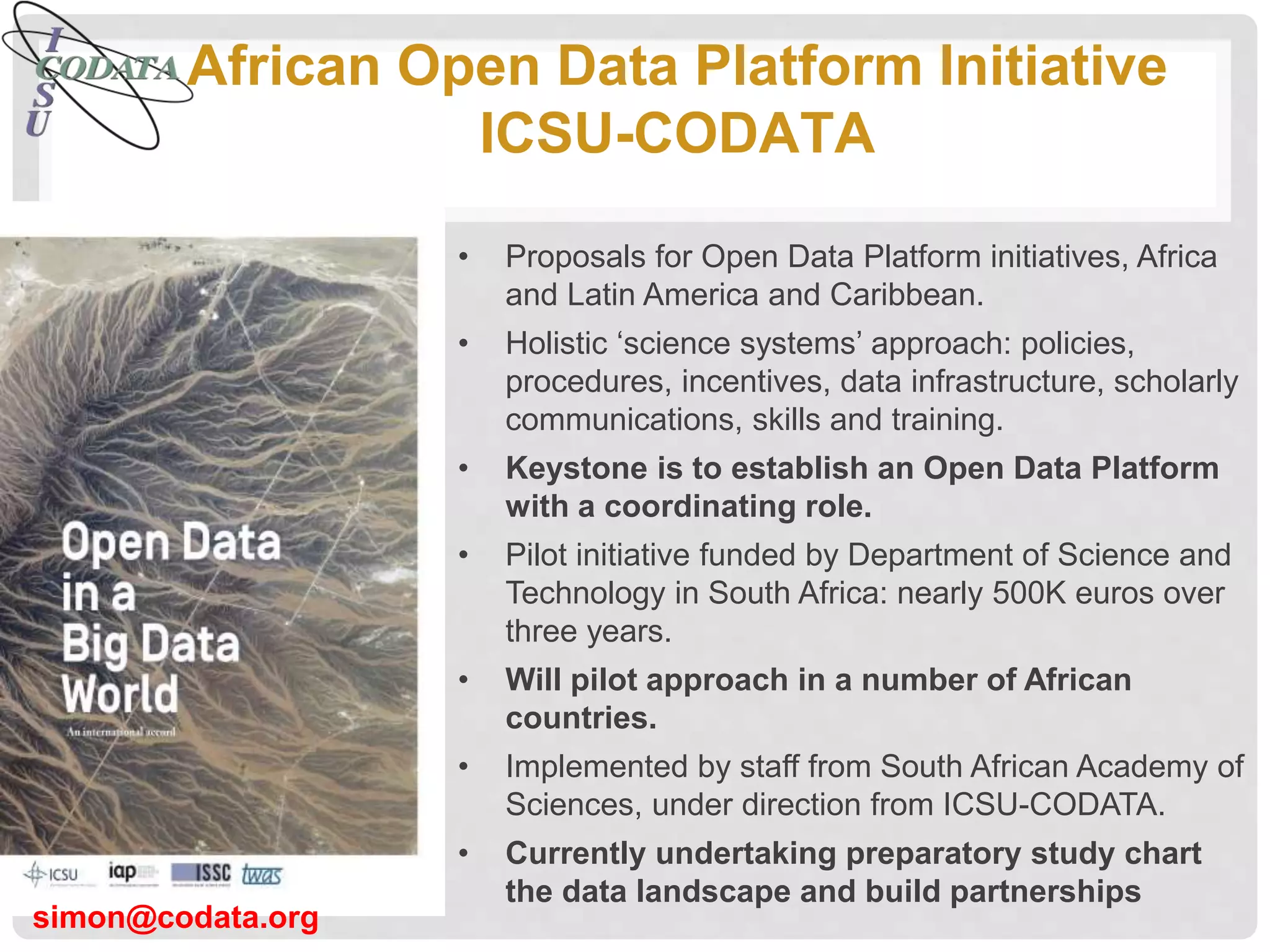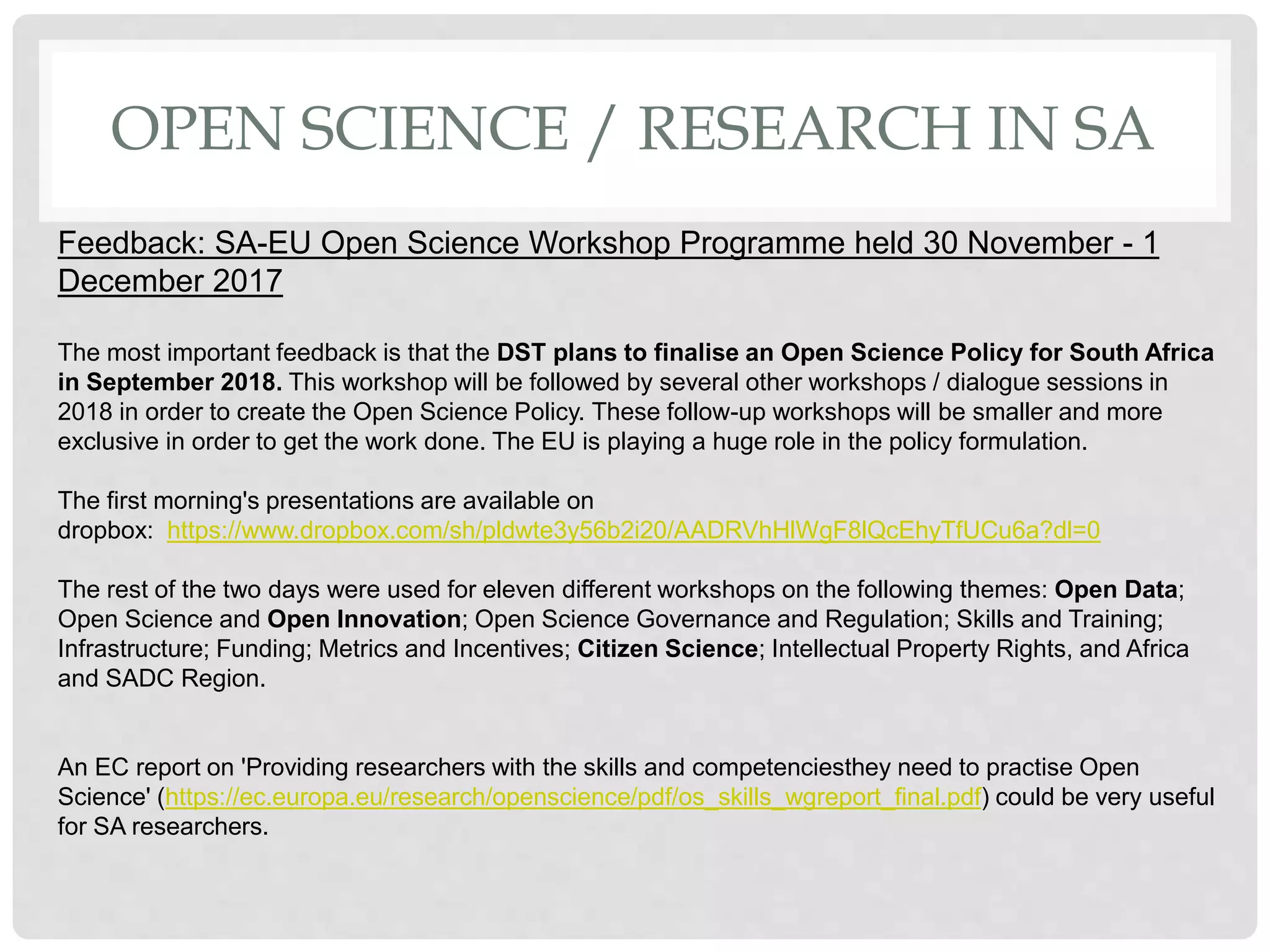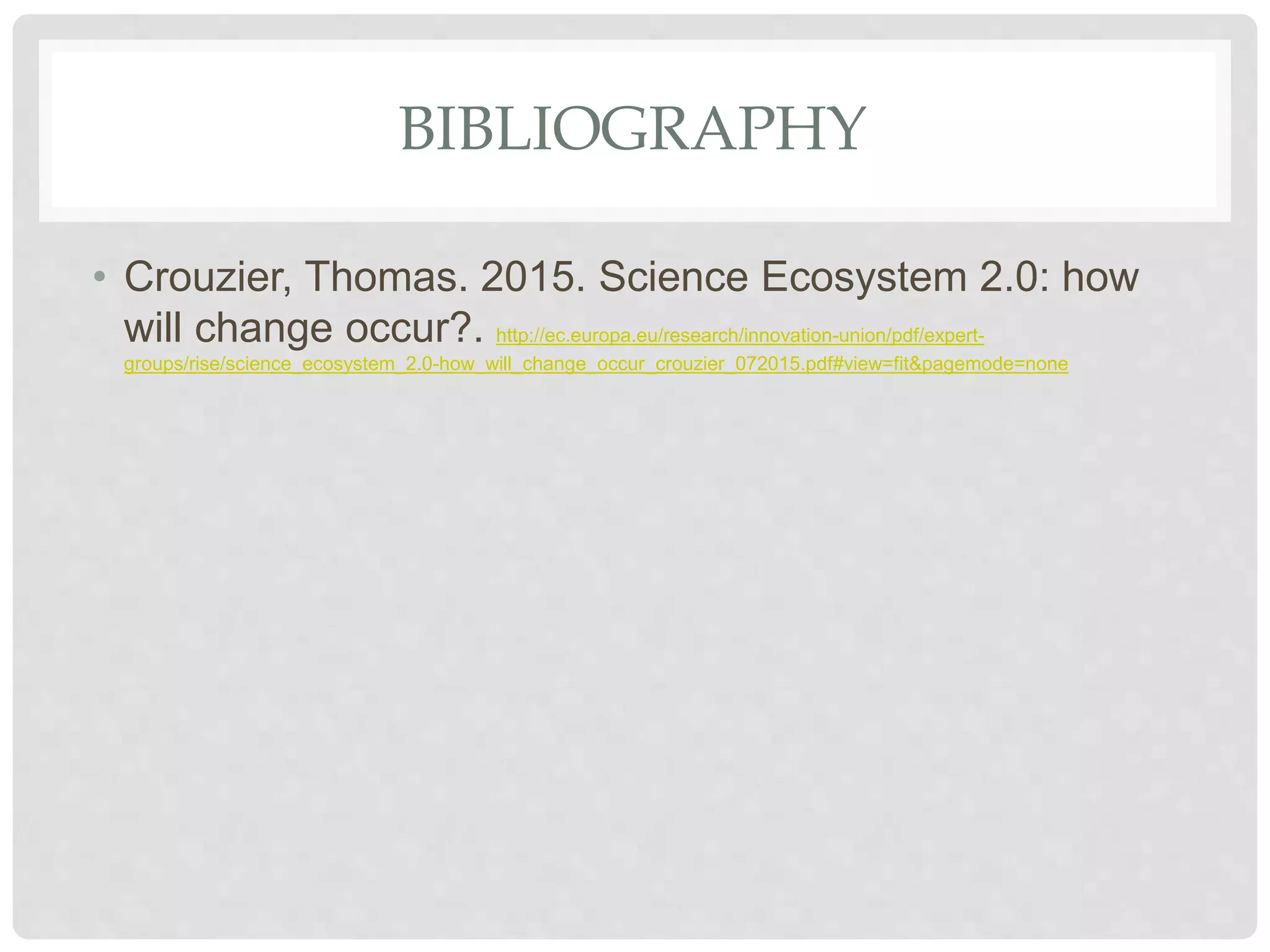Open science refers to making scientific research and data accessible to all. It includes open access to publications, open data, open source software, open notebooks, and citizen science. The European Union supports open science to increase transparency, collaboration and innovation in research. A workshop was held in South Africa to help develop an open science policy, with feedback that the policy will be finalized in September 2018 after additional workshops with European Union involvement. Open science aims to make the entire research process publicly available and reusable to maximize scientific progress.
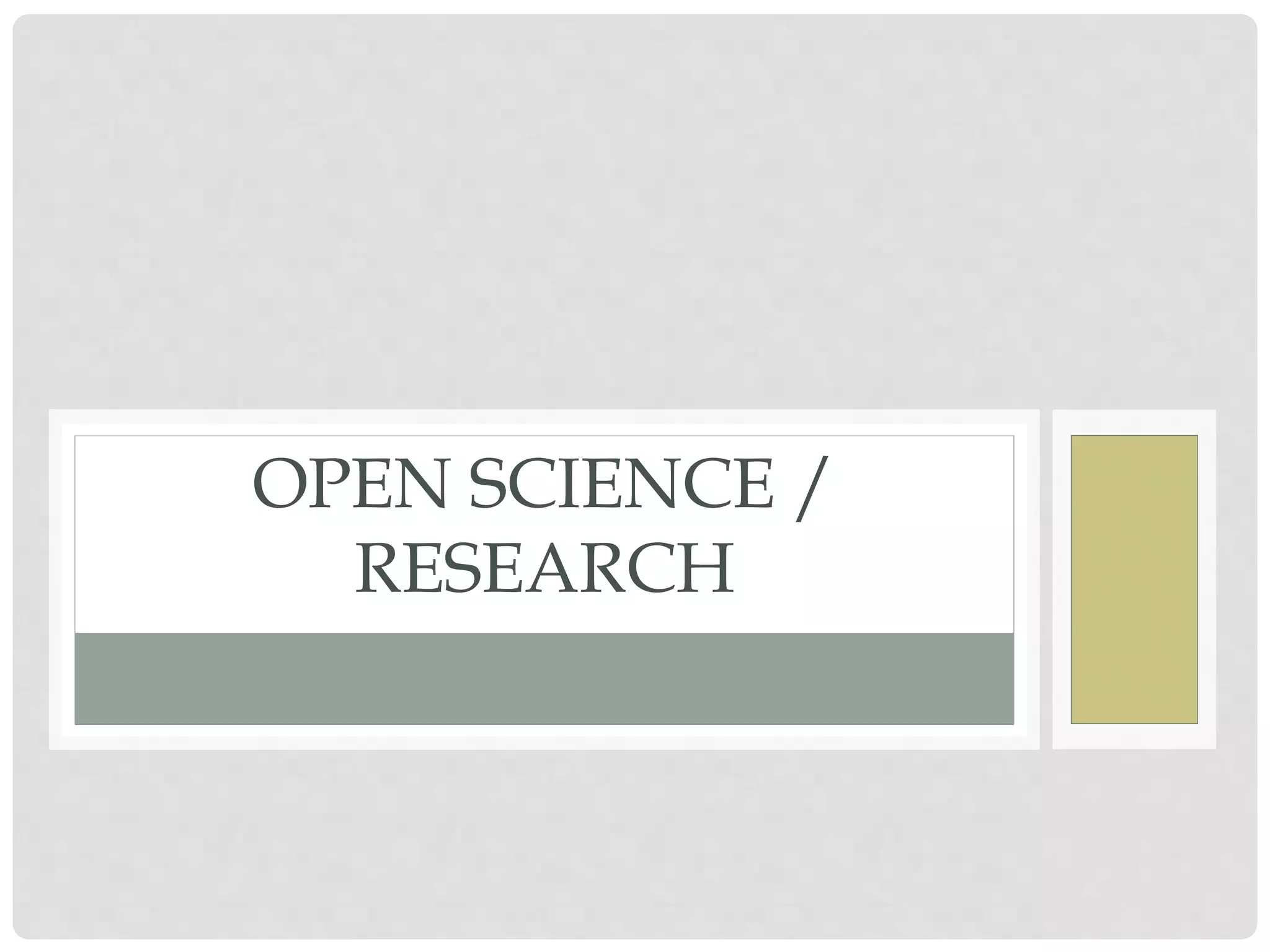
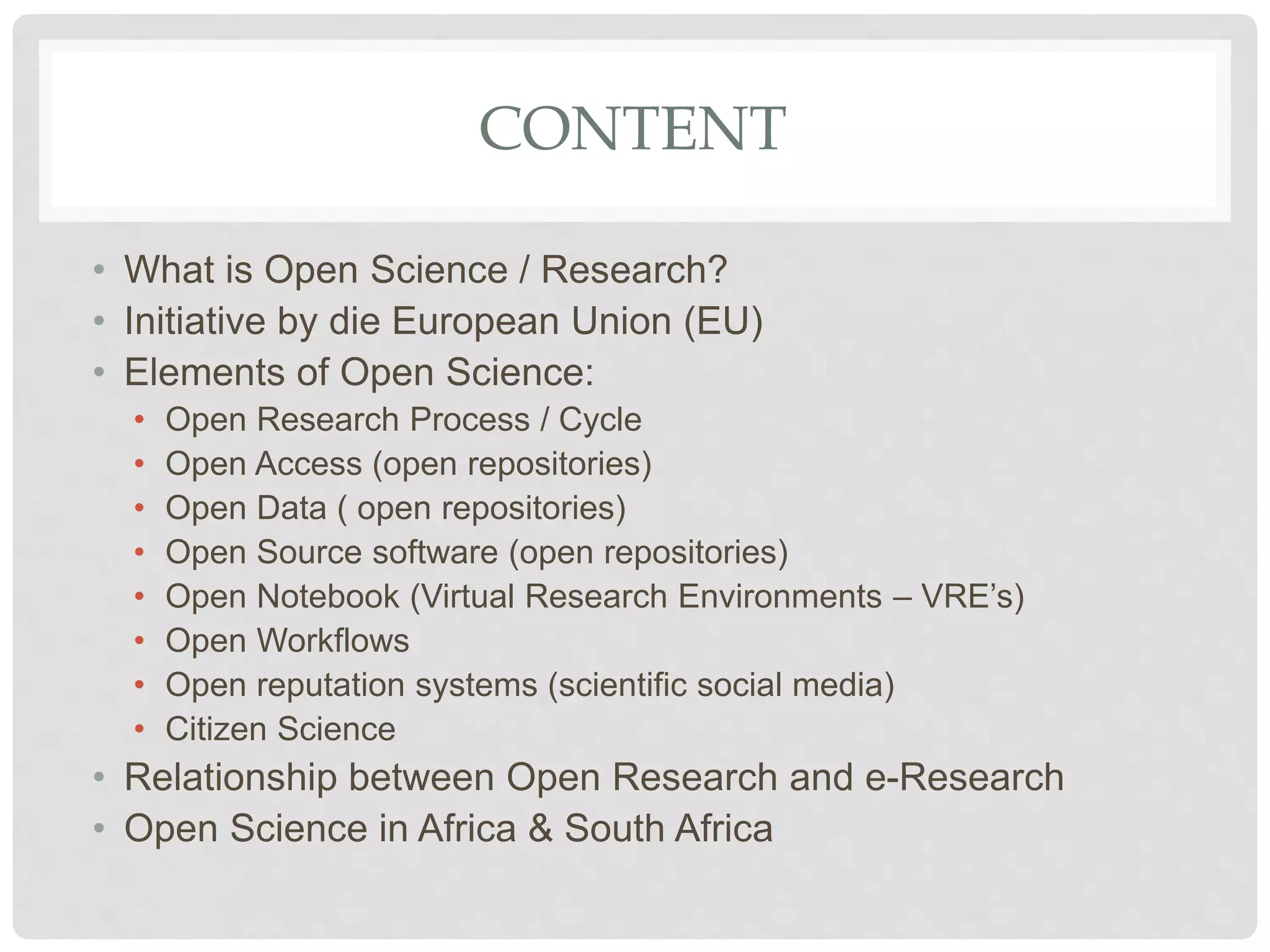
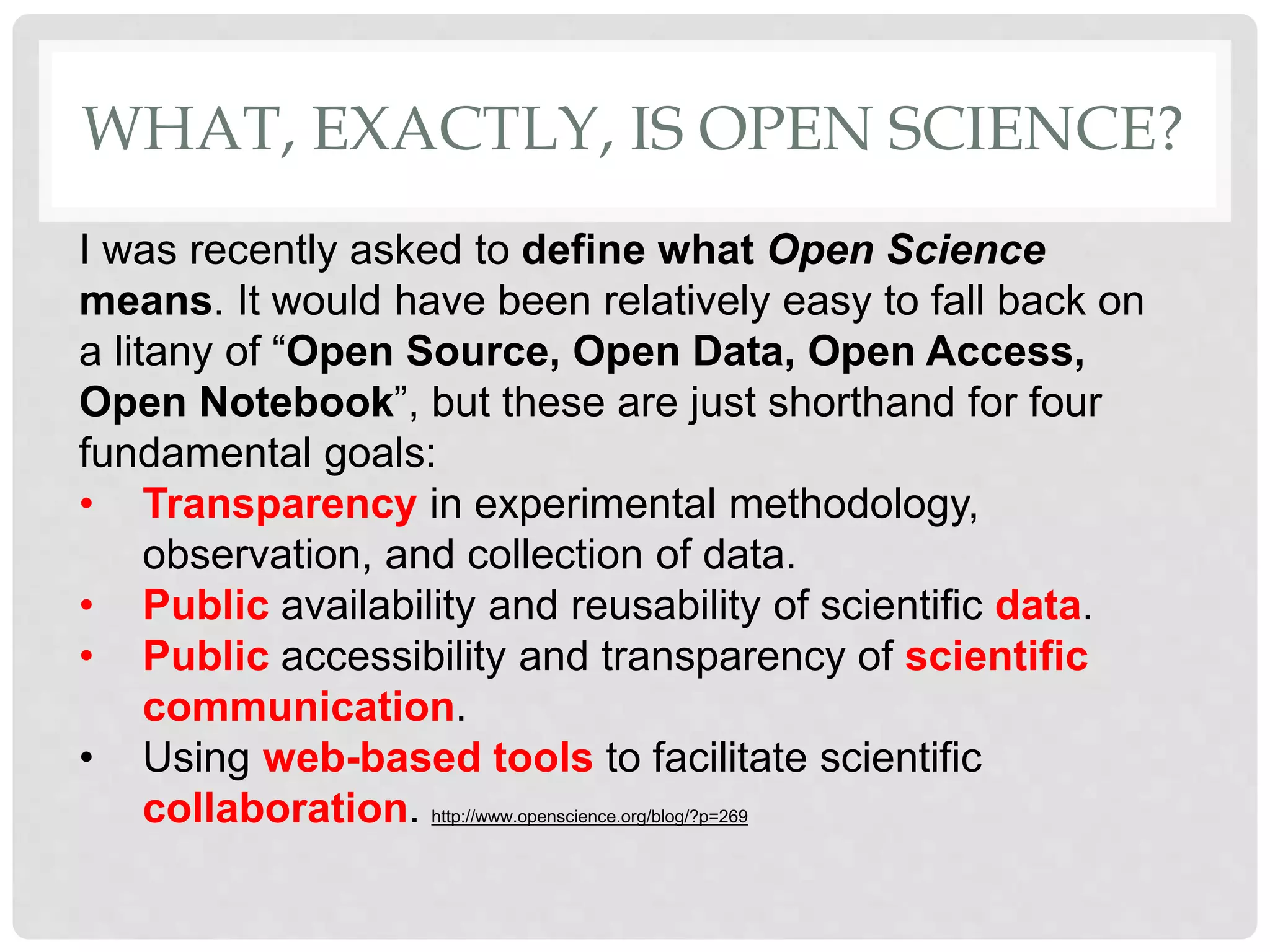
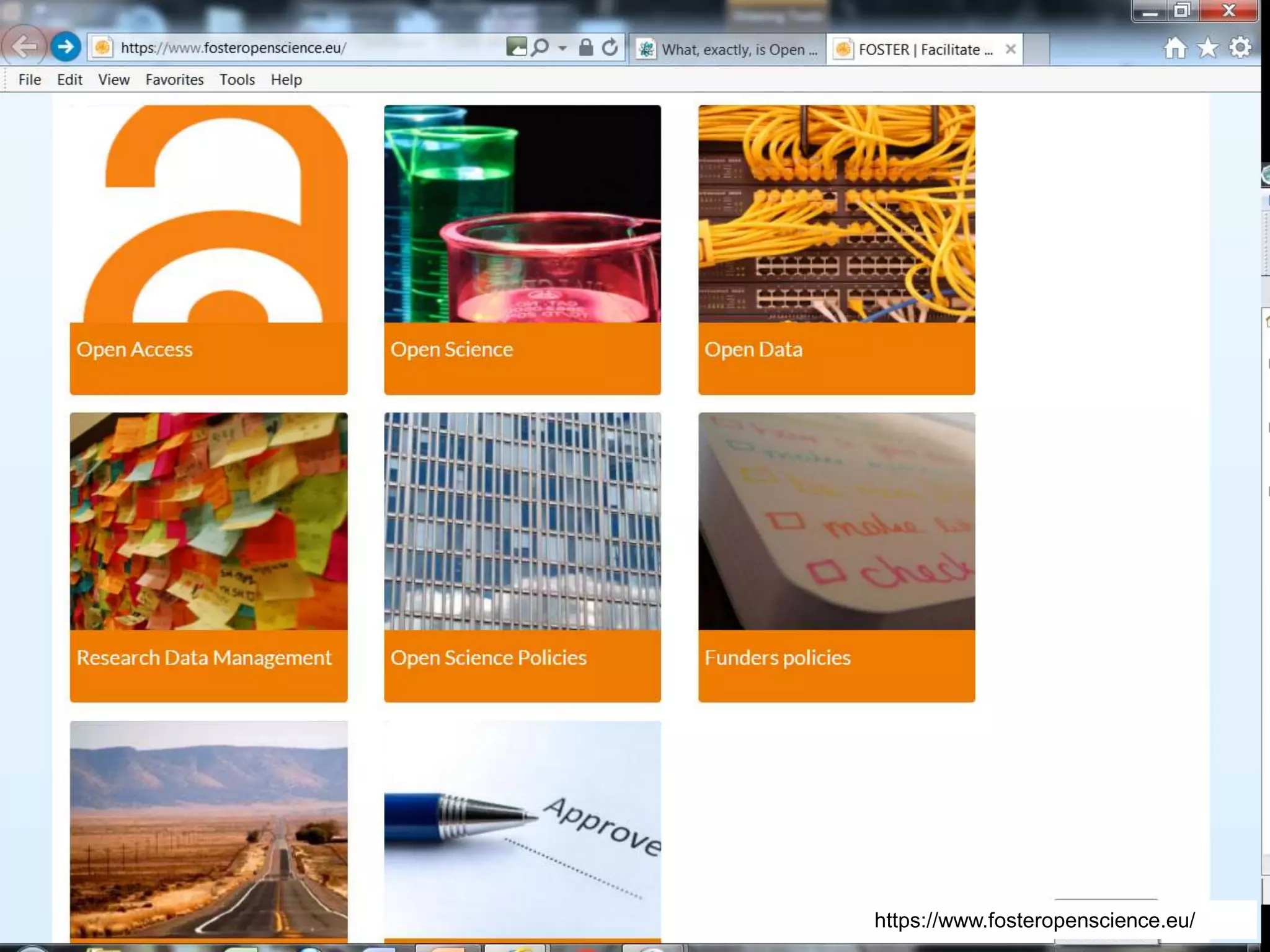
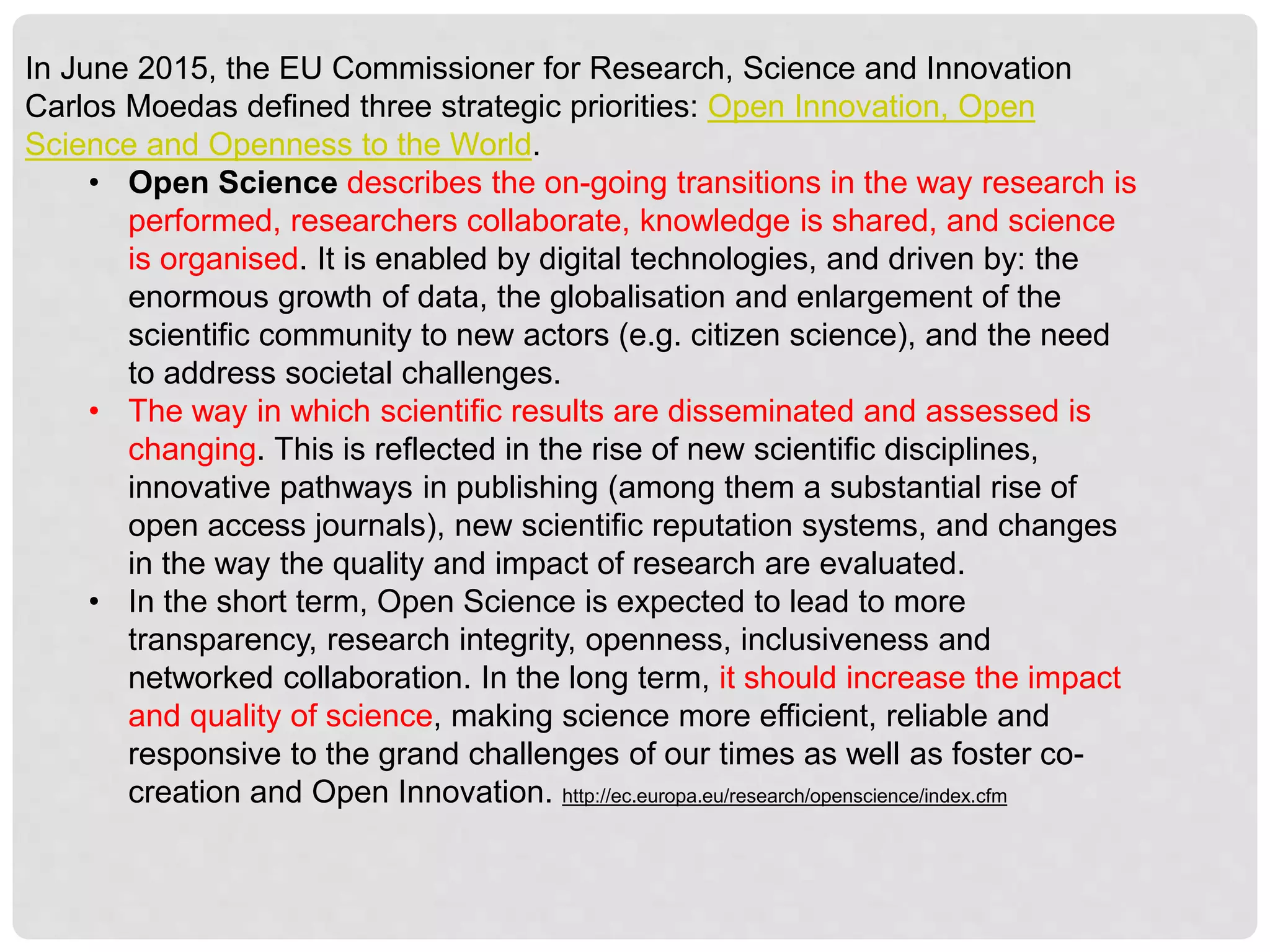
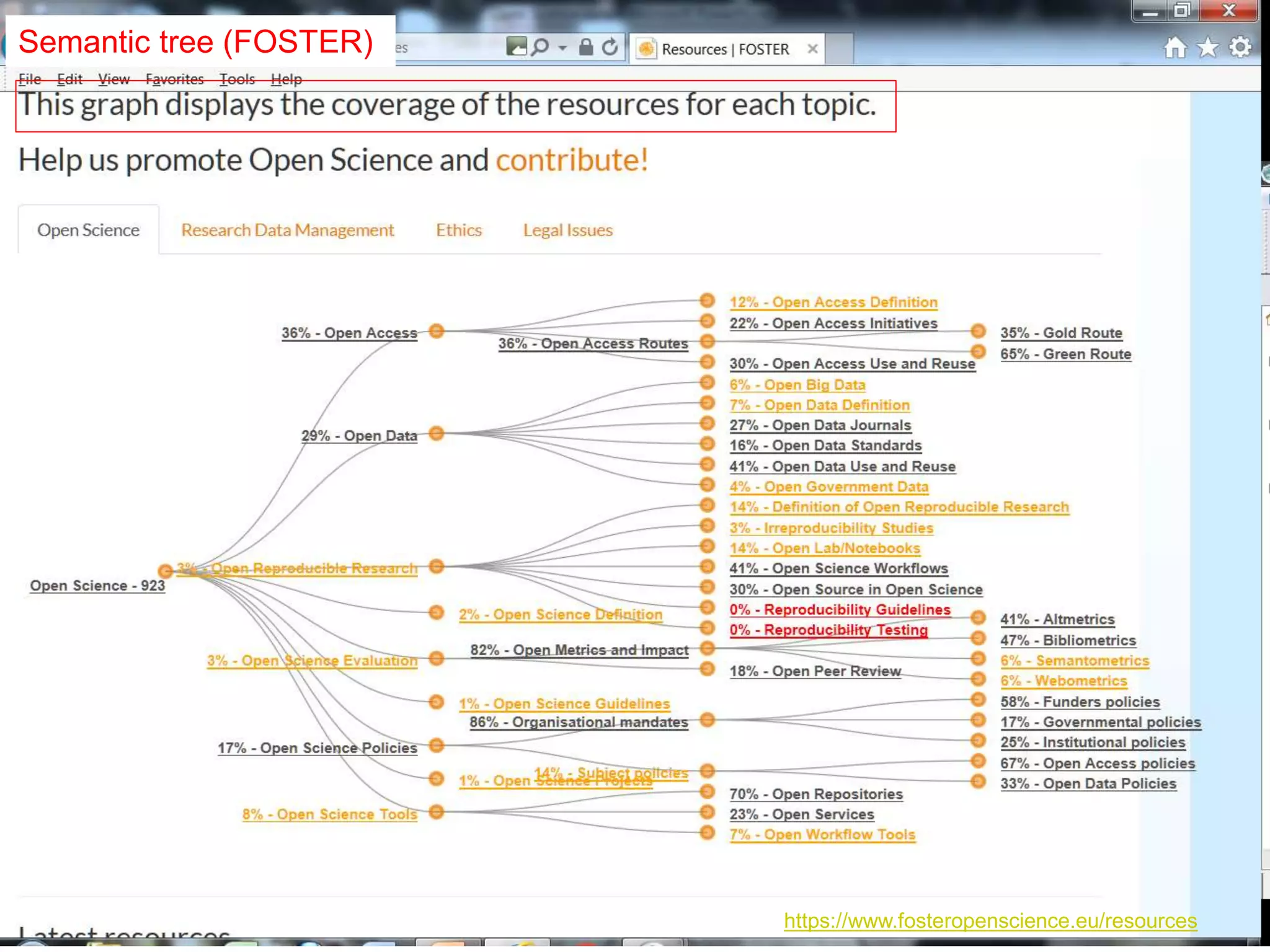
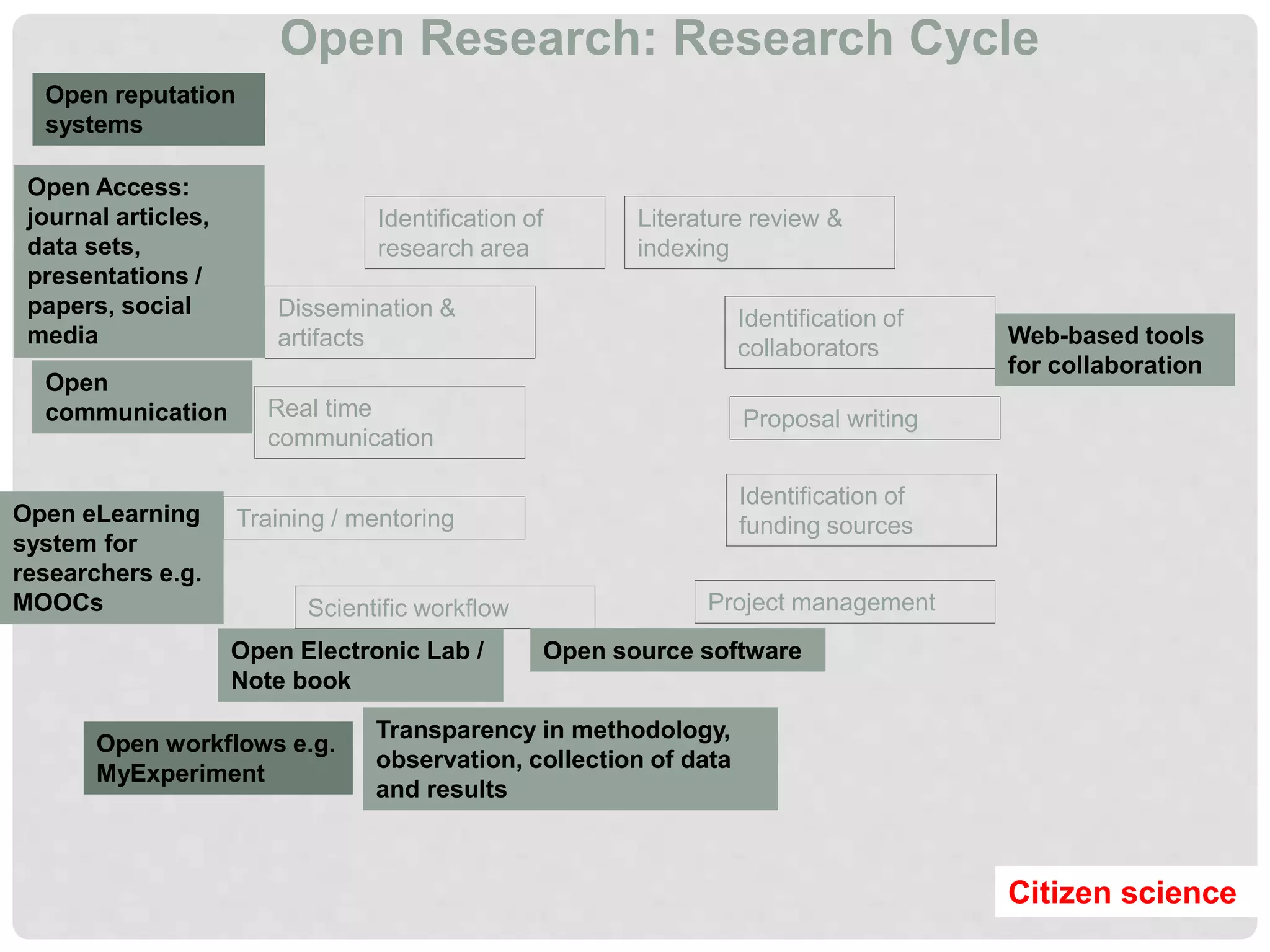
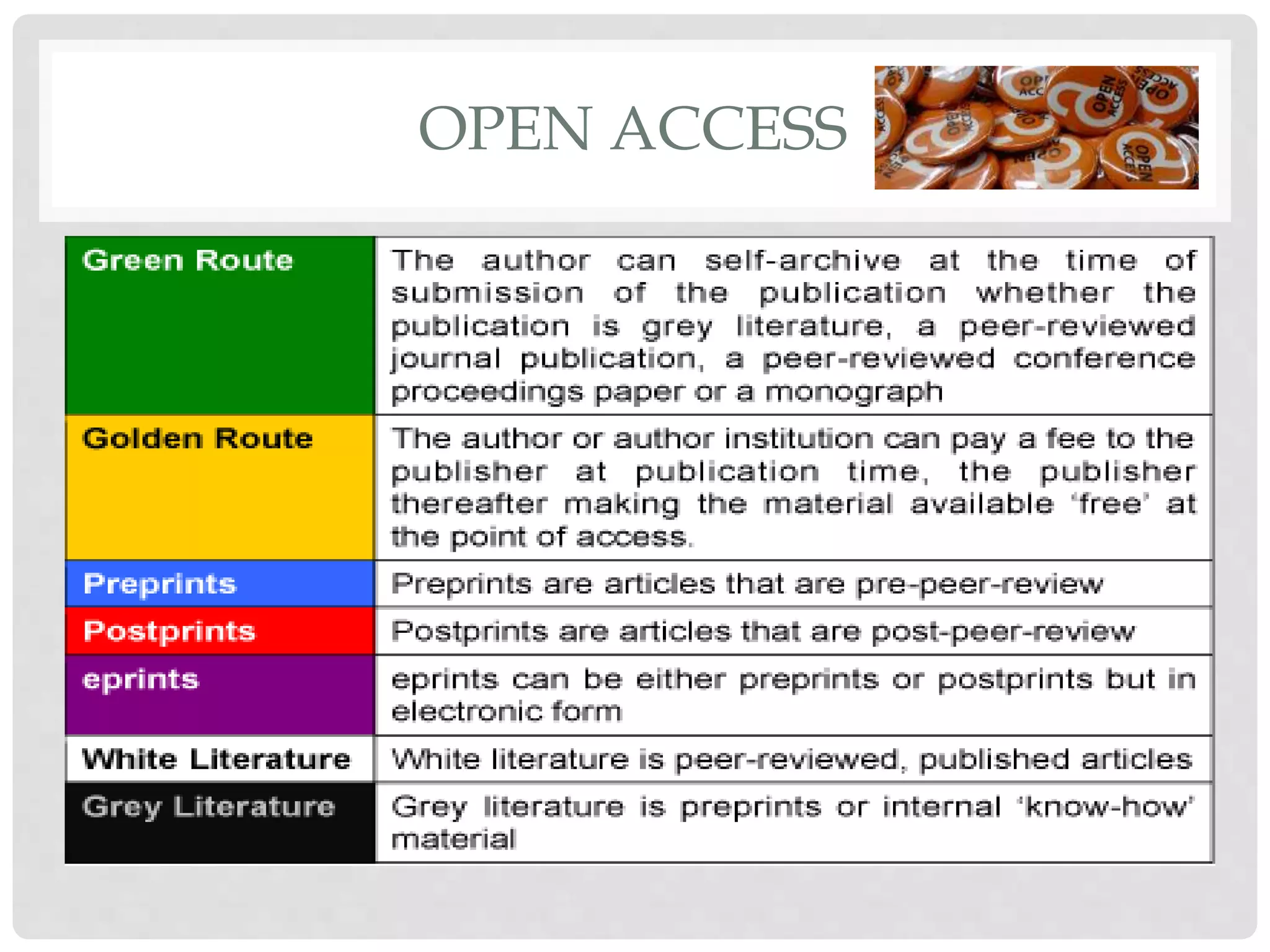
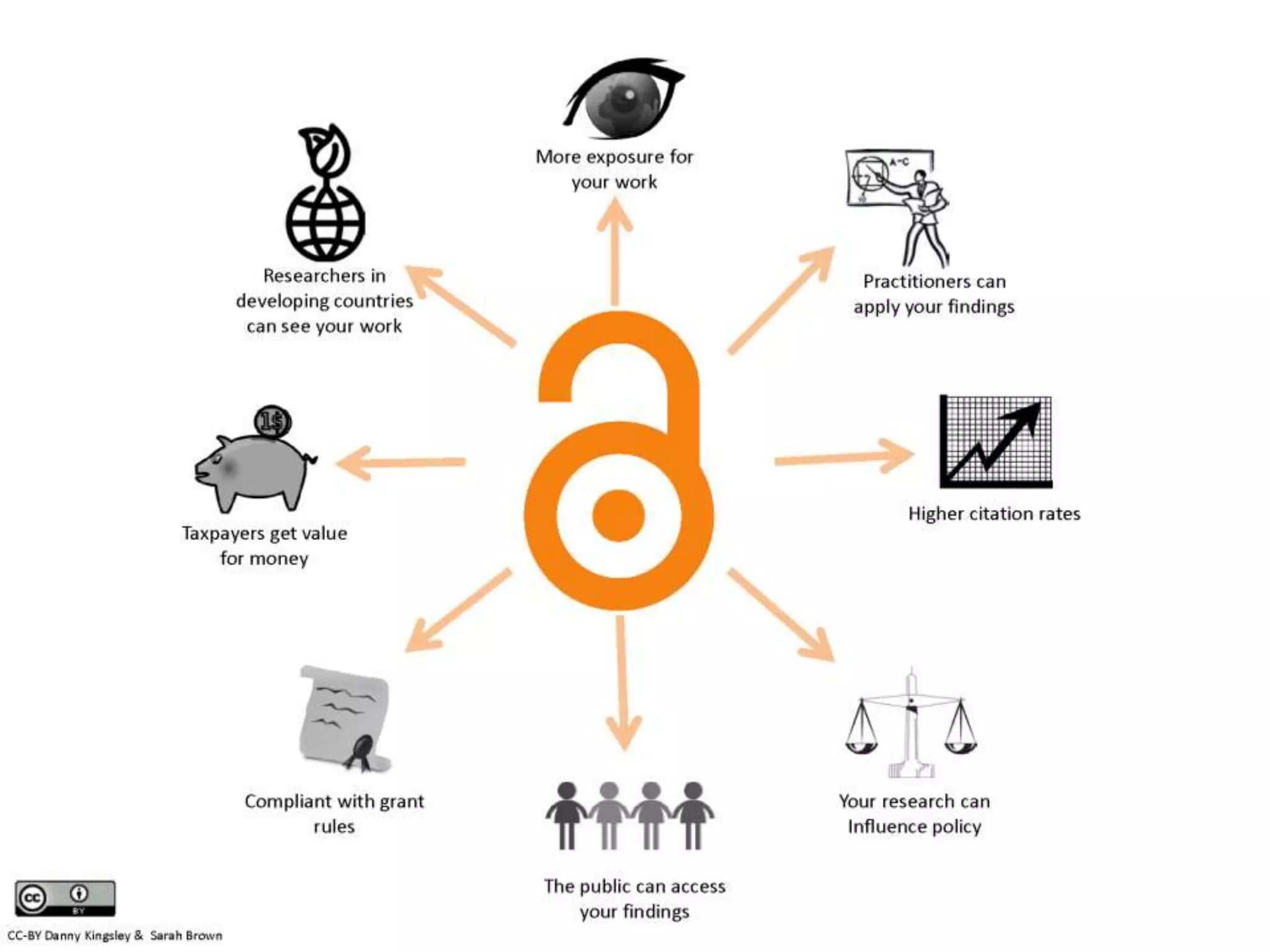
![OPEN DATA
• Open data is the idea that some data should be freely
available to everyone to use and republish as they wish,
without restrictions from copyright, patents or other
mechanisms of control.[1] The goals of the open data
movement are similar to those of other "open"
movements such as open source, open hardware, open
content, and open access. The philosophy behind open
data has been long established (for example in the
Mertonian tradition of science), but the term "open data"
itself is recent, gaining popularity with the rise of the
Internet and World Wide Web and, especially, with the
launch of open-data government initiatives such as
Data.gov and Data.gov.uk. https://en.wikipedia.org/wiki/Open_data](https://image.slidesharecdn.com/openscience-180220133103/75/Open-science-open-research-10-2048.jpg)
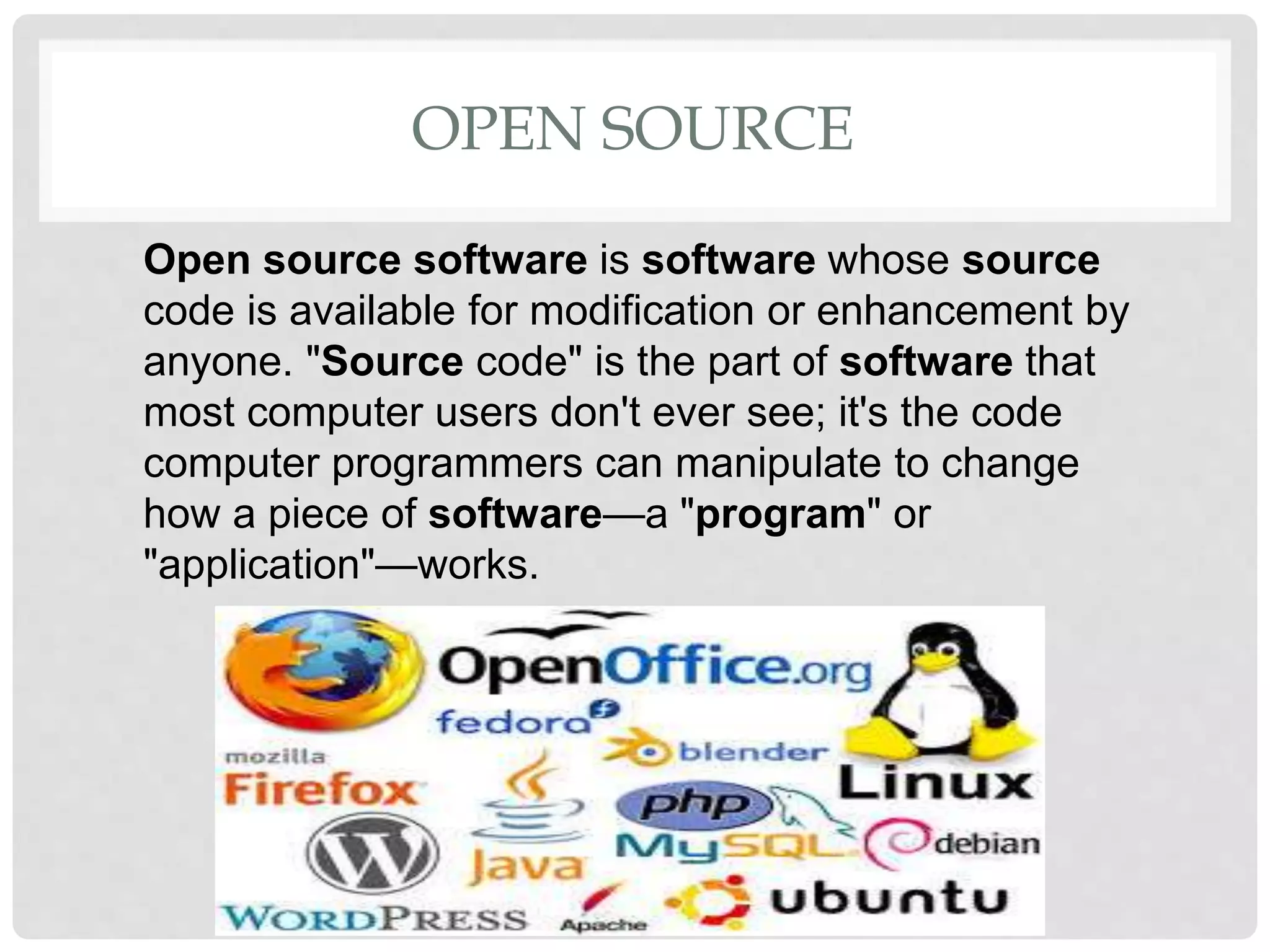
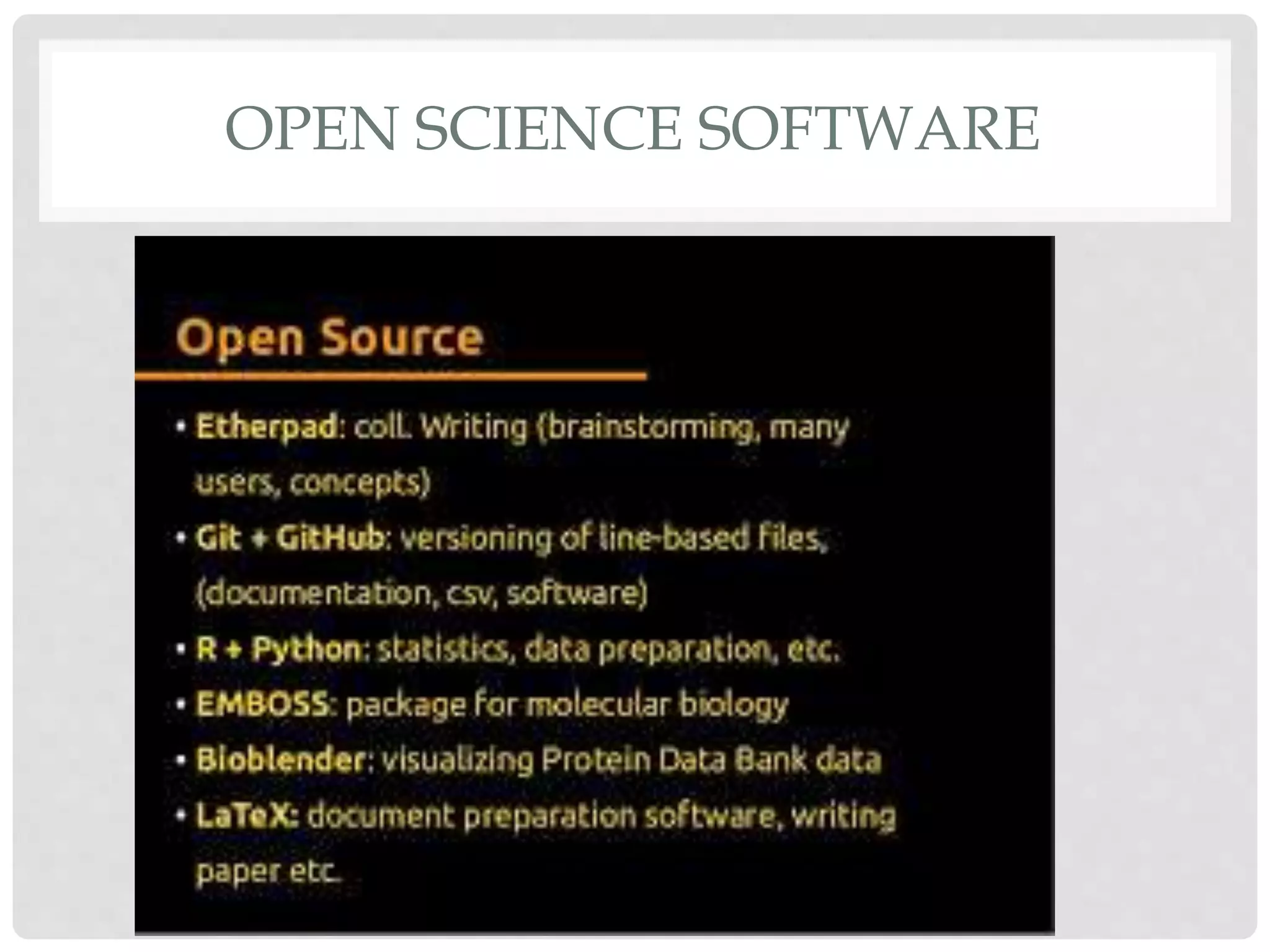
![OPEN NOTEBOOK
Open notebook science is the practice of making the
entire primary record of a research project publicly
available online as it is recorded. This involves placing the
personal, or laboratory, notebook of the researcher online
along with all raw and processed data, and any associated
material, as this material is generated. The approach may
be summed up by the slogan 'no insider information'. It is
the logical extreme of transparent approaches to research
and explicitly includes the making available of failed, less
significant, and otherwise unpublished experiments; so
called 'dark data'.[1]
https://en.wikipedia.org/wiki/Open_notebook_science](https://image.slidesharecdn.com/openscience-180220133103/75/Open-science-open-research-13-2048.jpg)
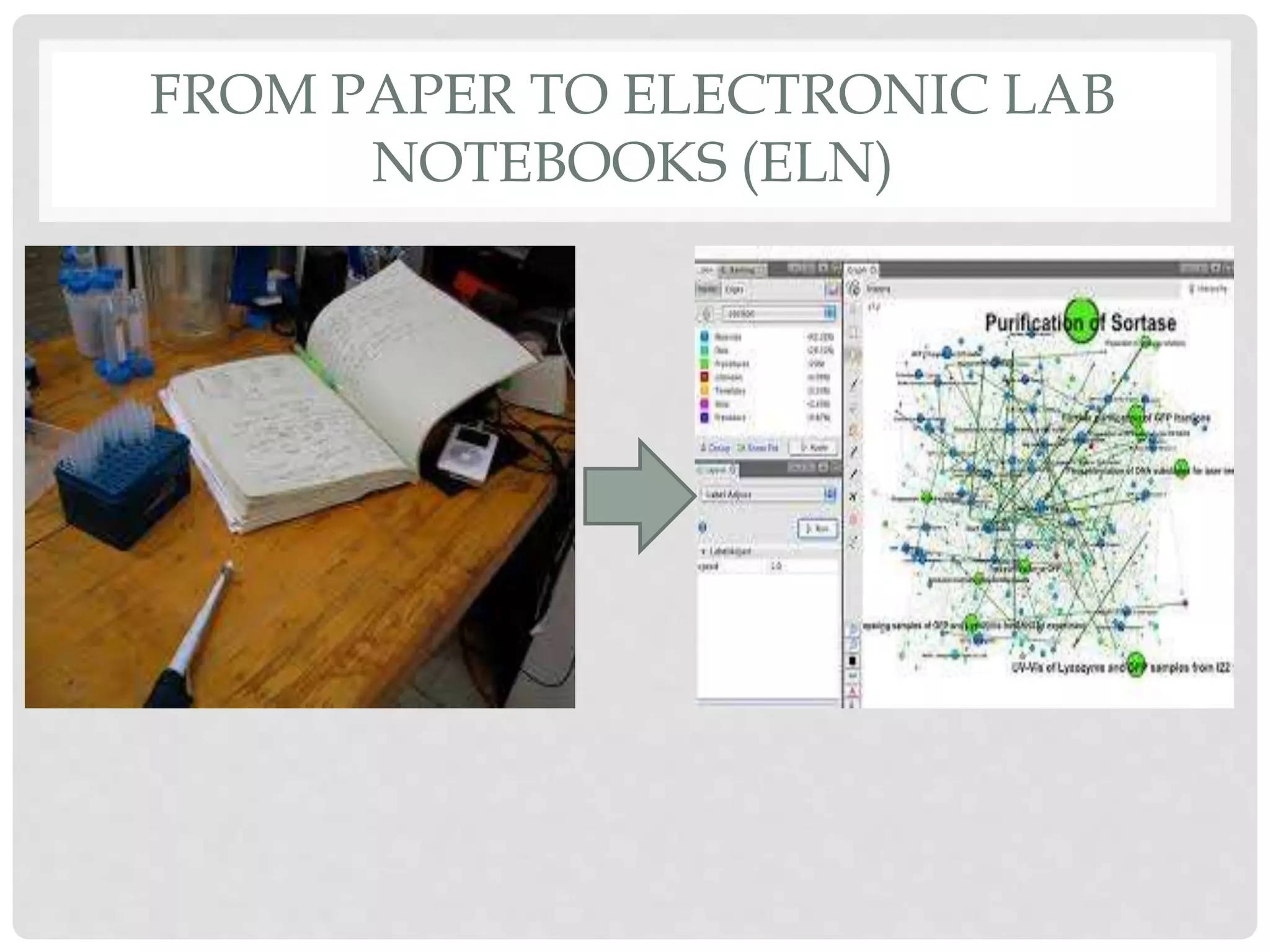
![OPEN COLLABORATION
Open collaboration is the principle underlying peer
production, mass collaboration, and wikinomics.[1] It was
observed initially in open source software, but can also be
found in many other instances, such as in Internet
forums,[2] mailing lists,[3] Internet communities,[4] and many
instances of open content, such as creative commons. It
also explains some instances of crowdsourcing,
collaborative consumption, and open innovation.[7]
https://en.wikipedia.org/wiki/Open_collaboration](https://image.slidesharecdn.com/openscience-180220133103/75/Open-science-open-research-15-2048.jpg)
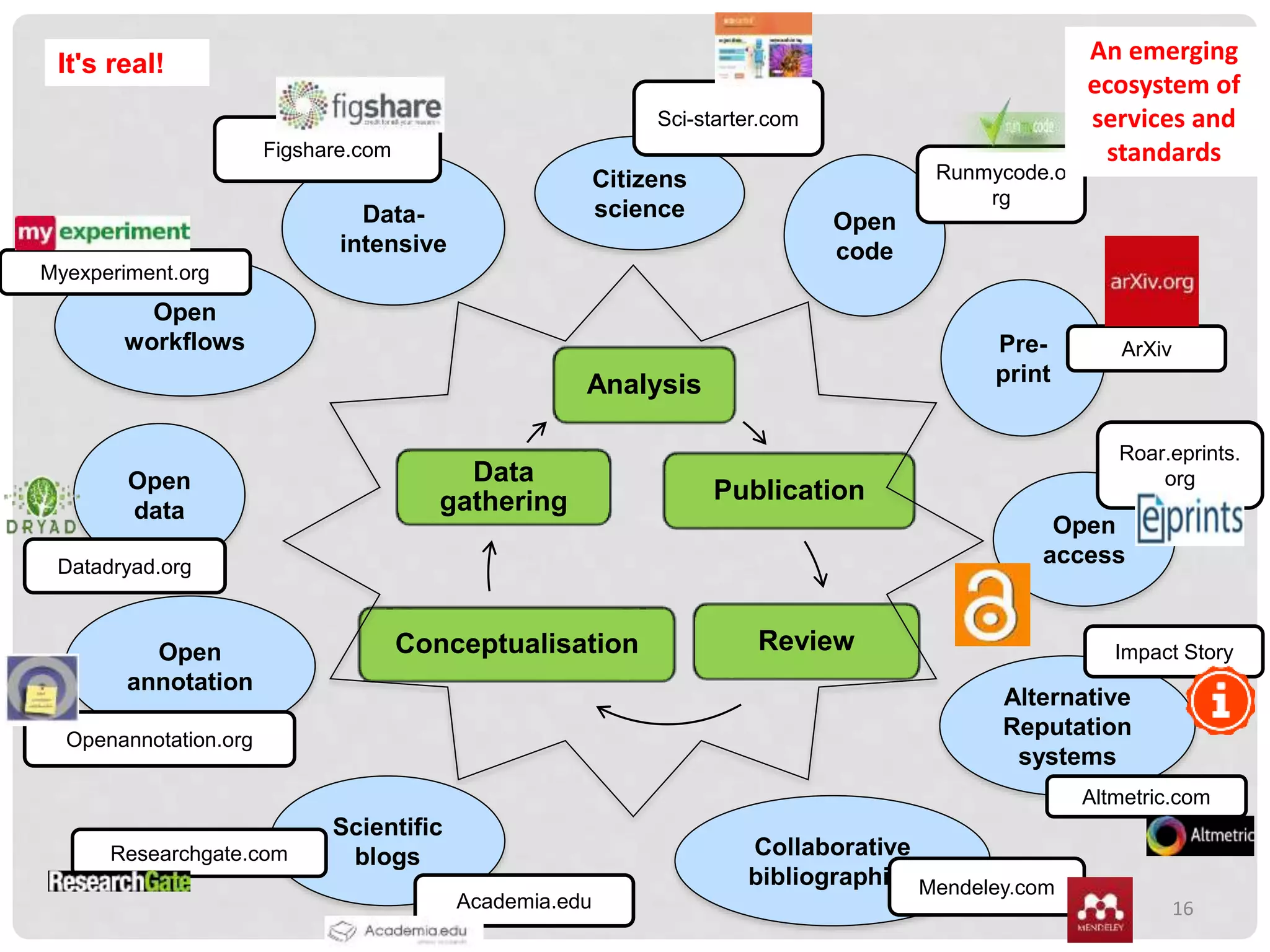
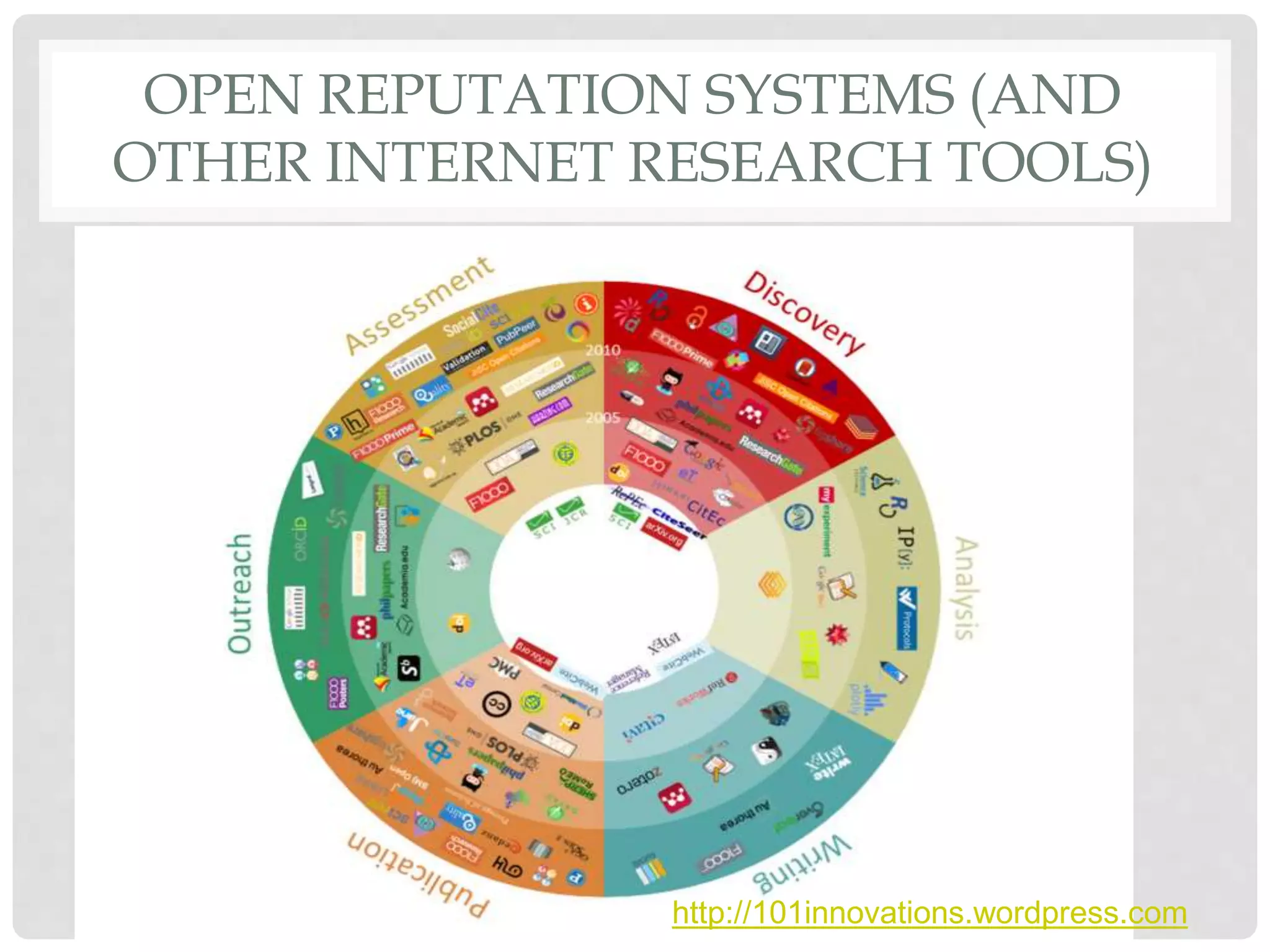
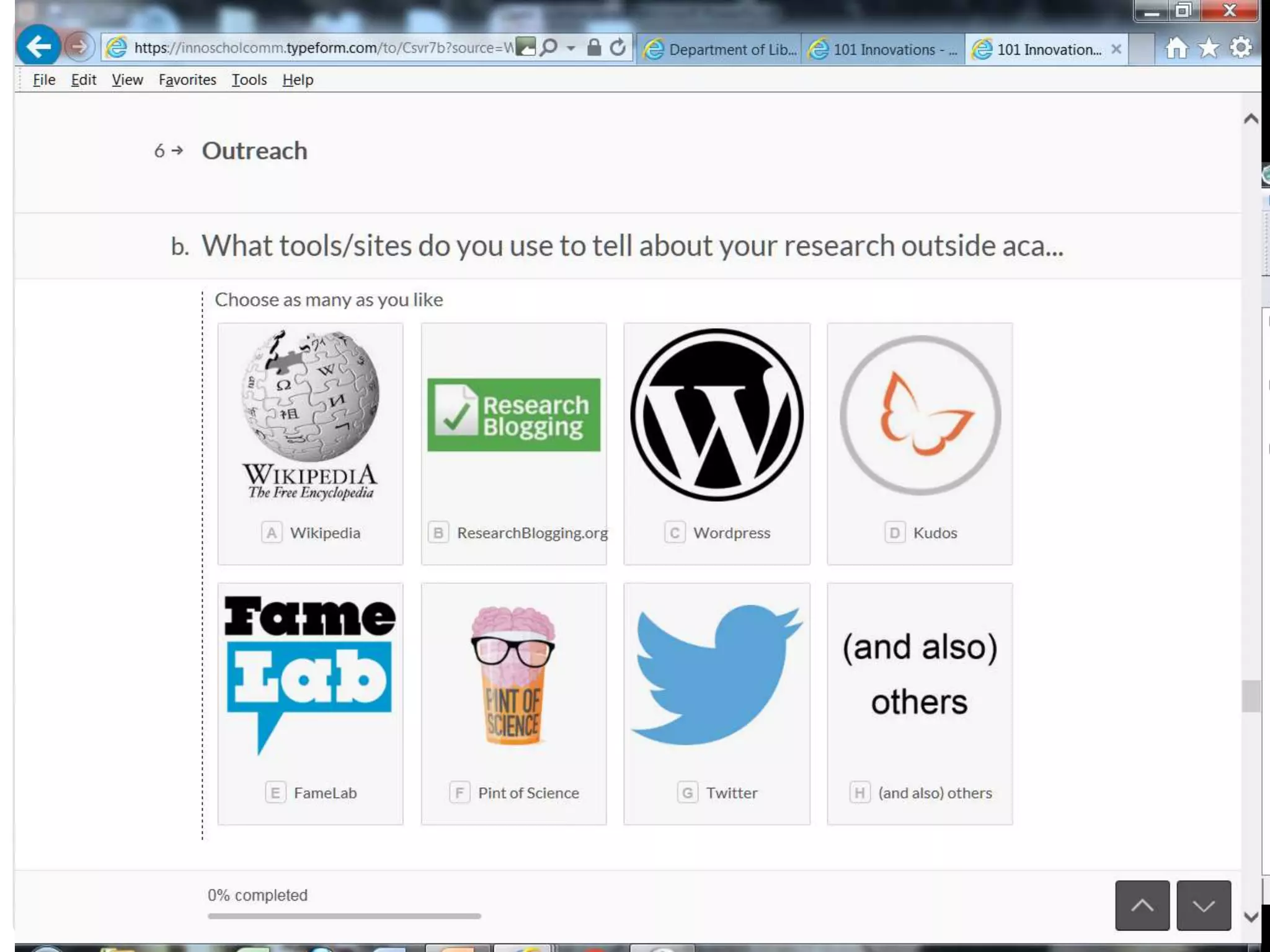
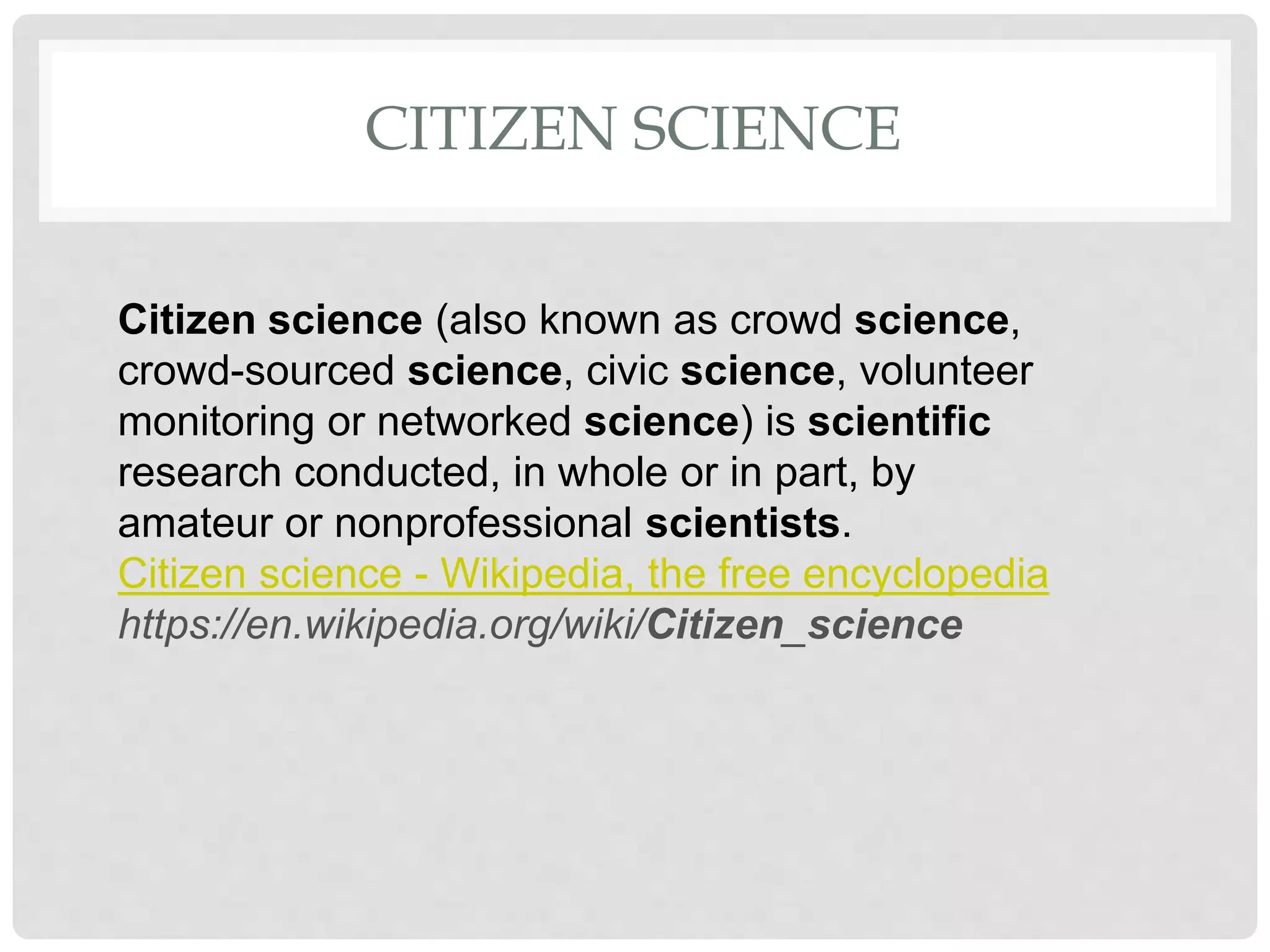
![Zooniverse is a citizen science web portal owned and operated by the Citizen
Science Alliance. It is home to the internet's largest, most popular and most
successful citizen science projects.[3] The organization grew from the original
Galaxy Zoo project and now hosts dozens of projects which allow volunteers
to participate in crowdsourced scientific research. It has headquarters at
Oxford University and the Adler Planetarium.[4] Unlike many early internet-
based citizen science projects (such as SETI@home) which used spare
computer processing power to analyse data, known as volunteer computing,
Zooniverse projects require the active participation of human volunteers
to complete research tasks. Projects have been drawn from disciplines
including astronomy, ecology, cell biology, humanities, and climate
science.[5]
As of 14 February 2014[update], the Zooniverse community consisted of more
than 1 million registered volunteers.[6] The volunteers are often collectively
referred to as "Zooites".[7][8] The data collected from the various projects has
led to the publication of more than 70 scientific papers.[9] A daily news
website called 'The Daily Zooniverse' provides information on the different
projects under the Zooniverse umbrella, and has a presence on social media.
https://en.wikipedia.org/wiki/Zooniverse_(citizen_science_project](https://image.slidesharecdn.com/openscience-180220133103/75/Open-science-open-research-20-2048.jpg)
